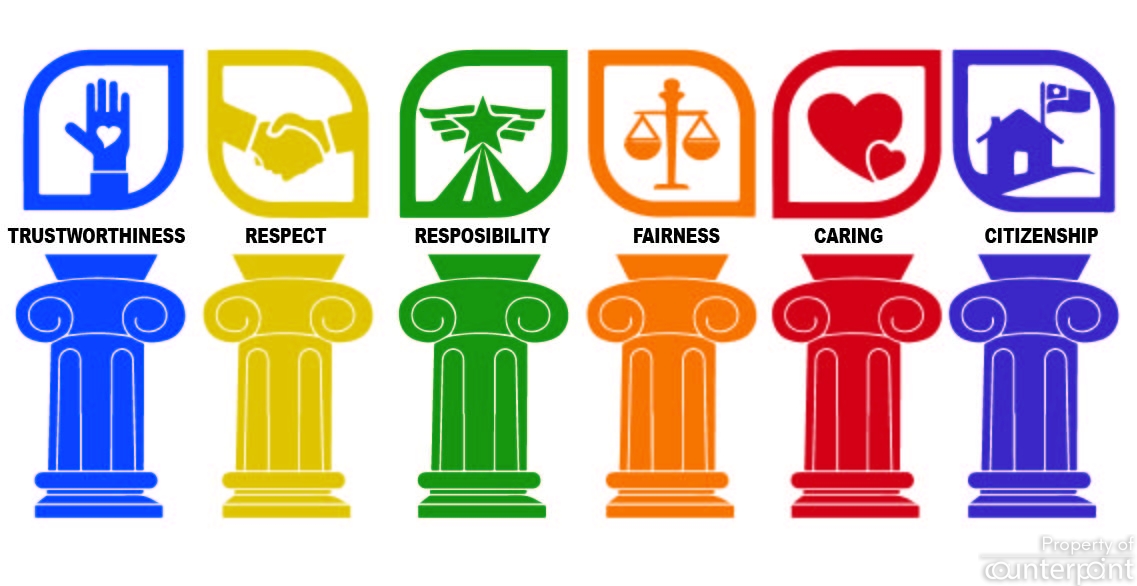Character education is a new global education trend, the importance of which cannot be emphasized enough. Character or lack thereof, is the main reason for the current predicament of the human race. In a country where grown men cannot walk two steps without spitting, cannot help but manspread on public transport and gawk at women showing the slightest curvature and women cough and sneeze without any regard to those around them at all, regardless of gender, invade each other’s personal spaces, perfectly intelligent men and women who enter university victimize fellow students in the name of ragging, the country as a whole is in much need of a good lesson in ethics, social responsibility and respect for others. And a better part of character education focuses on imparting such knowledge.
True hygiene and manners may seem of less import when considering how many in the world die of hunger and malnutrition. But we have bigger problems that have festered due to lack of respect for others and social responsibility. The coronavirus is a case in point. Take for example the various videos on social media showing Chinese men and women willfully attempting to spread the disease to unsuspecting individual by infecting elevator number panels or purposely spraying spittle or mucous on oblivious bystanders. Then there were the videos of the ‘toilet paper wars’, of how the coronavirus fear drove otherwise perfectly sane men and women to hoard, of all things, toilet paper, lest they ran out. Some women were caught on camera stooping as low as cat fighting over toilet paper. Human consumerism has reached a state where people would rather hoard toilet paper instead of food in the face of a pandemic.
Closer to home, we have the case of the Sri Jayawardhenapura University student who is in critical condition because he was subjected to inhumane ragging by those who had no respect for the lives of others. Such behaviour is displayed by those who lack an ethical compass. The result is a disease wrought society, of both mind and body, in a world with an ecology beyond recuperation. Success in life is not limited to academic excellence. It requires mutual respect. Which is exactly why character education is essential.
What is it?
In short character is an impression we leave behind. It’s the sum of all the qualities that make one who he or she is. Those of good character understand the difference between good and bad, is able to assess a situation, choose the right from wrong and then execute it.
Character education can be defined as an education method that aspires to create ethical, responsible, caring, honest, well-mannered, morally upright, civic-minded individuals. It fosters fairness and respect for self and others and other important traits that make for an upstanding citizen. In the paper ‘The Need For Character Education’ (International Journal Of Social Sciences And Humanity Studies) Aynur Pala points out that good character involves knowing, caring about and acting upon core ethical values such as respect, responsibility, honesty, fairness and compassion.
Leading US expert in character education Thomas Lickona said that character education is “the deliberate effort to cultivate virtue.” Ethical sensibilities such as courage, good judgment, integrity, civility, kindness, perseverance, responsibility, tolerance, self-discipline, respect for others, as Lickona pointed out must be ‘deliberately’ instilled while still young. A good character is not achieved overnight. It requires teaching, example, learning and practice.

Why is it important?
By definition alone, creating morally upstanding citizens may seem easy enough, however, unfortunately modern education has developed in another direction, towards focusing only on academic success.
Lickona justifies the need for character education saying, “There is a clear and urgent need. Young people are increasingly hurting themselves and others and are decreasingly concerned about contributing to the welfare of others.” Character education is necessitated by the moral predicament of today’s society, exemplified by the aforementioned coronavirus related incidents and the recent ragging incident among other disturbing trends such as racism, xenophobia and violence.
Pala reiterates that character education is imperative due to the many influences the younger generation faces through media, peers and other external sources, as compared to previous generations.
Character education imparts knowledge students need, to identify the dangers in society and deal with them. Besides it can be of immense help to students in their academic pursuits as well. Diligence and a sense of responsibility, two of the core elements in character education can undoubtedly help students focus more on studies. Adopting character education is a win-win call as it is believed that it is easier to teach children who can exercise patience, self-control and diligence, key qualities instilled through character education.
Western concept?
Western education systems have identified the need for educator, parent as well as participation of the community and faith groups in imparting character education. Western countries feel the need to conduct character education via school education system because their culture is such that children are often left alone with no one to guide them. Luckily, over 2500 years of Buddhist culture in Sri Lanka has instilled some of the virtues that the Western world has only recently felt the need to impart in order to create wholesome individuals.
But this begs the question, why in a country with such a strong history of inculcating good virtues did such a promising young man as Pasindu Hirushan become the latest victim of ragging? Given that according to global research schools that employ character education have fewer disciplinary issues, suspensions, and truancy, not to mention reduction in substance abuse, if the culprits were given character education beforehand which would have instilled in them respect for others, Hirushan would have been left to finish his education in peace. And perhaps, without harping on a 2500 year old history, it is high time that education authorities revisited their priorities.
(This article is the 27th instalment in a series of articles which discusses education related issues on a fortnightly basis in counterpoint.)





